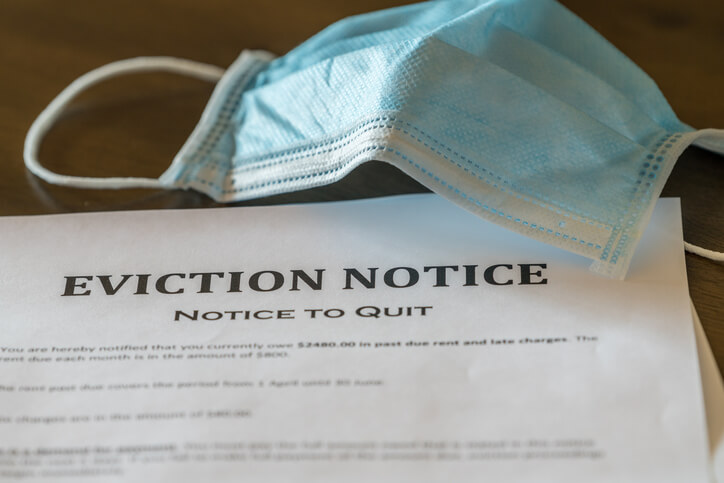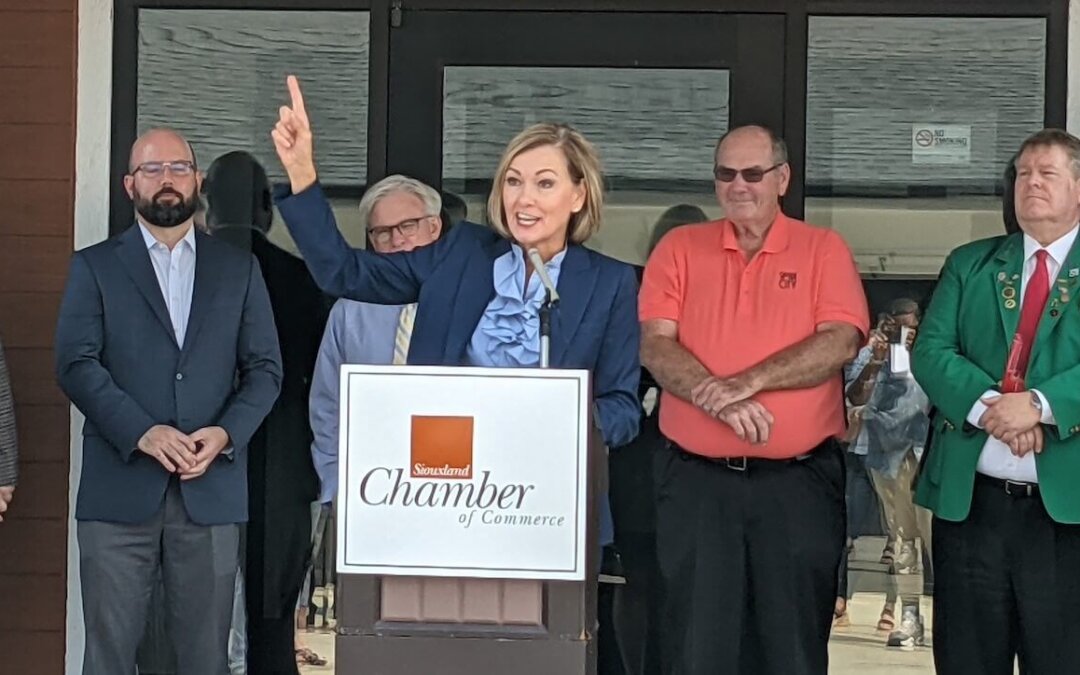
Defaulting renter with facemask receives letter giving notice of eviction from home on wooden table
More than 30,000 Iowans think they will be evicted within two months.
The federal eviction moratorium, put in place to help renters who have struggled to make rent and utility payments, ends on Saturday. It was originally set to expire on June 30 but was extended one month.
President Joe Biden asked Congress on Thursday to extend it for another month, but in the meantime, rental assistance programs may help fill the gap.
However, the Iowa Rent and Utility Assistance Program hasn’t quite lived up to its promise.
[inline-ad id=”0″]
It launched in March to help Iowans outside of Polk County and Des Moines with rent and utility payments.
Of the reported $195 million it received from the US Department of the Treasury in January, Iowa had initially only used $3 million to pay rent, rental arrears, and utilities in May. It used $3.4 million in June.
Ashley Jared, comunications director for the Iowa Finance Authority, said Iowa has now used $9 million for assistance to about 3,000 households in 91 counties.
A week ago, 1,409 households had been assisted through the program, and the program hasn’t requested more funds that are available through the American Rescue Plan.
Debi Durham, director of the Iowa Finance Authority, told the Des Moines Register earlier this month the problem was software issues and not having federal guidelines for how to spend the money.
Jared previously told the Iowa Capital Dispatch they had trouble processing applications fast enough and hired more people to assist.
Now, they have 350 active case workers.
“We have been able to clear that backlog, I am pleased to report,” she said. “Every application in the system that’s been submitted is actively being reviewed by a case manager right now.”
Jared said people should immediately apply for the program if they receive an eviction notice or even a notice of late payment.
[inline-ad id=”1″]
Des Moines and Polk County received separate federal payments of about $15 million. Since the beginning of the year, the two entities have used $9 million and helped more than 2,500 households. That program, the Emergency Rental Assistance Program, is overseen by IMPACT Community Action Partnership, and it started two months earlier than the state-wide program.
The smaller program also pays up to three months of rent assistance in advance, which the state program doesn’t do.
Anne Bacon, executive director for IMPACT CAP, said Polk County and Des Moines are in the same place they were a month ago, in terms of need.
In the past week alone, she said the program has administered $1.3 million in assistance.
[inline-ad id=”2″]
The number of applications hasn’t decreased, and Bacon expects a significant increase in applicants if the eviction moratorium ends. Jared said the situation looks the same statewide.
“I don’t know, you know, how big an issue it’ll be, how fast an issue it will climb,” she said. “The eviction’s bad enough, but then having nowhere else for people to go is extremely problematic as well.”
So far, the money has gone to rent and utilities. Bacon said they haven’t had as much need for food assistance, though some of those programs are ending as well.
The group has used all of its money from round one of its allocation, and round two is expected to last through mid-September at the rate it’s distributing money. Bacon said it’ll go faster if they have more applicants.
[inline-ad id=”3″]
Bacon said recovery takes longer than people realize, especially when it often hits low-income people last, and that’s why an end to the eviction moratorium could be a disaster to people being forced from their homes without other options because of the lack of affordable housing.
“It still takes families longer to rebound back because of the economic hole that’s been created by having so many months without adequate income,” she said.
Most of the people the Emergency Rental Assistance Program help live below the poverty line. Some are unemployed, some collect money doing Uber, Doordash, or other nontraditional jobs, but still need help.
“Some people have stuck to the rhetoric that this has to do with people just not wanting to work,” Bacon said. “And I think as long as we focus only on that, we won’t understand what is truly happening, because that’s not our experience with families.”
She said a lot of the people IMPACT CAP works with have child care costs to deal with on top of their utilities and rent.
“It’s an odd feeling to have no idea what’s going to happen,” she said. “COVID in itself is unpredictable and I think its effects are equally unpredictable.”
UPDATE (July 30, 2021, 4:52 p.m.): This story has new information from Ashley Jared of the Iowa Finance Authority.
by Nikoel Hytrek
07/30/21
[inline-ad id=”5″]
Politics

Biden marks Earth Day by announcing $7 billion in solar grants
The Biden administration on Monday announced the recipients of its Solar For All Program, a $7 billion climate program that aims to lower energy...

6 terrifying things that could happen if the Comstock Act is used to target abortion
Does 1873 sound like a really, really long time ago? Well, that’s because it is—but if Republicans and far-right anti-abortion activists have their...
Local News

No more Kum & Go? New owner Maverik of Utah retiring famous brand
Will Kum & Go have come and gone by next year? One new report claims that's the plan by the store's new owners. The Iowa-based convenience store...

Here’s a recap of the biggest headlines Iowa celebs made In 2023
For these famous Iowans, 2023 was a year of controversy, career highlights, and full-circle moments. Here’s how 2023 went for the following Iowans:...





